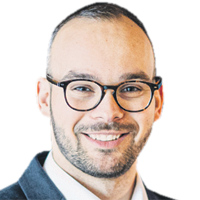The annual Jailbreak race for Charity will be taking place at several UK universities this year, starting off with Cambridge at the end of January. The race entails students (in pairs or threes) trying to get as far away from their point of departure as possible within the next 36 hours. And it is not as simple as it may first sound, as the competitors have to reach their respective goals without using a single penny of their own money.
The race takes place at several universities across Britain, including Cambridge, Bristol, or Nottingham. The winning team of Bristol Jailbreak 2013 had said for Bristol University News: “Our Jailbreak journey has been nothing short of incredible. We managed to get all the way to Rzeszow, Poland - just near the Ukrainian border - without spending any money."
"We've seen some amazing places and have been bowled over by quite how nice some people in the world are. We had five lifts - to Dover, Cologne, just east of Cologne, Krakow and finally Rzeszow.” The students Amy Samson, Alex Bradbrook and Andrew Armson managed to get 1,729 km away from Bristol.
In Cambridge, the winning team of 2013 got all the way to Sydney, Australia. Alice and Wei managed to get sponsored by a corporate firm who decided to invest money in their trip as part of their corporate responsibility program.
Students taking part in Jailbreak raise up to 900 GBP a pair for local as well as national charity organizations. They get sponsored by their friends, who bid a certain amount of money, usually connected to certain tasks such as getting to a certain place or hitchhiking in a costume. Students may also be sponsored by companies, as Alice and Wei from Cambridge University were.
At both universities the race is organized by RAG, a student-run charity organization focusing on fundraising. It does not stop at just one event – throughout the year, students organize several fundraising events, such as the Blind Date, or one similar to Jailbreak, but slightly less popular – Lost.
Student charity is a national phenomenon in the UK, supporting numbers of organizations which, thanks to funds raised by students, can continue and improve their work throughout the years. They also offer valuable experience for students who wish to go into jobs in charity organizations and fundraising in the future. Perhaps they should serve as a leading example for university students throughout Europe, as they also could realize their creative potential for a good cause.
Bottom line: What is the craziest think you have done for charity? Tell us!
 Přidejte si Hospodářské noviny
mezi své oblíbené tituly
na Google zprávách.
Přidejte si Hospodářské noviny
mezi své oblíbené tituly
na Google zprávách.
Tento článek máteje zdarma. Když si předplatíte HN, budete moci číst všechny naše články nejen na vašem aktuálním připojení. Vaše předplatné brzy skončí. Předplaťte si HN a můžete i nadále číst všechny naše články. Nyní první 2 měsíce jen za 40 Kč.
- Veškerý obsah HN.cz
- Možnost kdykoliv zrušit
- Odemykejte obsah pro přátele
- Ukládejte si články na později
- Všechny články v audioverzi + playlist





